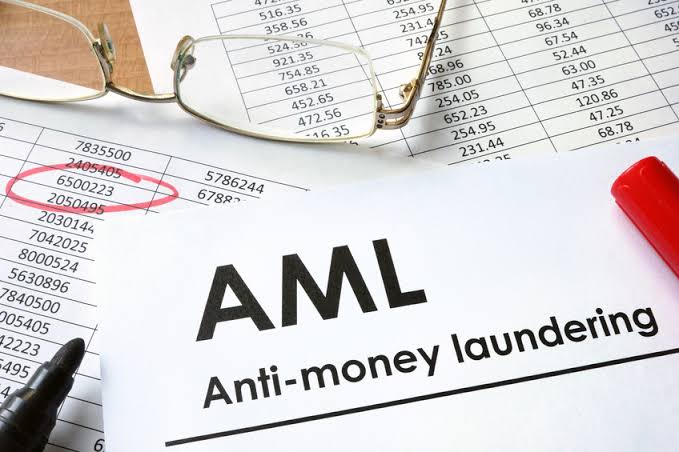In today’s hyper-connected world, money moves faster than ever. From Lagos to London, San Francisco to Singapore, trillions flow across borders in the blink of an eye. But behind this seamless convenience lies a growing shadow – financial crime. And it’s getting smarter.
Fraudsters, money launderers, and criminal networks are no longer operating in isolation. They’re leveraging technology, exploiting loopholes, and often staying one step ahead of compliance systems. The old way of doing things—where banks fought crime alone, regulators set the rules from afar, and fintechs focused solely on innovation—just isn’t cutting it anymore.
To outsmart financial crime in this new era, we need more than stricter rules or smarter software. We need to work together.
Why Collaboration Isn’t Just a Buzzword
It’s easy to say “collaboration is key,” but what does that really mean in the context of Anti-Money Laundering (AML) and risk management?
Picture this: a major Nigerian fintech detects a pattern of suspicious transactions on its platform. It’s unusual but not illegal—yet. On the other side of the ecosystem, a bank in Kenya is flagging withdrawals linked to the same users. Meanwhile, regulators in the UK have just issued an alert about an emerging fraud ring using similar tactics.
Now imagine all three entities sharing that information in real time. Imagine how quickly that criminal ring could be exposed—or better yet, stopped before laundering a single kobo or penny.
This kind of intelligence-sharing ecosystem isn’t a pipe dream—it’s already taking shape in places like the UK, where the Financial Conduct Authority’s Innovation Hub and TechSprints bring banks, tech firms, and regulators together to solve financial crime challenges collaboratively. In Australia, the country’s top five banks are pooling data to detect scams in real time. Even the Financial Action Task Force (FATF) has emphasized that defeating modern financial crime demands unified public-private partnerships.
In Canada, similar steps are being taken. Project Athena, spearheaded by the Financial Transactions and Reports Analysis Centre of Canada (FINTRAC), brought together financial institutions, law enforcement, and provincial regulators to tackle money laundering in British Columbia’s real estate sector. The initiative revealed deep-rooted vulnerabilities in how illicit funds were being moved through casinos, shell companies, and property transactions—issues highlighted in the Cullen Commission report. The Canadian government is now moving to establish a public beneficial ownership registry through Bill C-42, enhancing transparency and making it harder for criminals to hide behind anonymous corporate structures.
The Nigerian Lens: A Market on the Move
Nigeria is Africa’s fintech heartbeat. From mobile payments to blockchain-backed solutions, the ecosystem is booming. But as innovation accelerates, so does risk. The Central Bank of Nigeria (CBN) is sounding the alarm, urging financial institutions—both traditional and digital—to rethink their approach to compliance.
Earlier this year, the CBN released guidance notes calling for stronger AML programs among other financial institutions (OFIs). It wasn’t just a warning. It was a call for collaboration—to combine the deep compliance knowledge of banks with the agility and tech innovation of fintechs, all under the regulatory watch of the CBN.
The truth is, no single player has all the tools to tackle modern financial crime. But together, the pieces form a powerful puzzle.
What’s Getting in the Way?
Despite the potential, building a truly collaborative AML ecosystem isn’t without hurdles. Here are some of the biggest:
- Data privacy concerns: Sharing customer data across organizations requires trust and robust safeguards. In Canada, for example, institutions must navigate the Personal Information Protection and Electronic Documents Act (PIPEDA), which limits how financial institutions can share data—even when it’s in the public interest.
- Tech inequality: Not every institution has the tools or systems to plug into a larger compliance network. Smaller credit unions in Canada, like many OFIs in Nigeria, often face resource constraints when implementing sophisticated monitoring systems.
- Regulatory gaps: Different rules in different regions can make cooperation complex, especially for cross-border payments and global fintechs. Canada’s provincial oversight structure—with varying requirements between provinces—can create inconsistencies in enforcement and compliance culture.
Still, these are solvable problems. And the more we address them together, the closer we get to a future where financial crime is the exception—not the norm.
A Consultant’s Role: Bridging the Gaps
Here’s how consulting services can support a more unified, effective AML and risk management culture:
- Cross-sector connection: I organize strategy sessions, workshops, and policy roundtables that bring banks, fintechs, and regulators into the same room—literally or virtually. These aren’t lectures; they’re working groups where real solutions are built. In Canada, I’ve facilitated panels with credit unions in Ontario and startups in Toronto’s fintech corridor, encouraging alignment on compliance goals.
- Building stronger frameworks: Whether you’re a fintech startup or a legacy bank, I help develop custom AML programs that are both regulation-compliant and agile enough to grow with your business. I’ve worked with institutions in Canada to align their systems with both FINTRAC expectations and FATF best practices.
- Technology integration: From AI-driven transaction monitoring to predictive risk scoring, I guide institutions on adopting tools that enhance—not replace—human oversight.
- Capacity development: Staff training is non-negotiable. I offer tailored AML workshops that go beyond the basics and dive into real-world case studies, red flags, and evolving threats. For example, one Canadian insurance firm recently engaged me for an interactive training on how AI and identity fraud intersect in AML risk.
- Policy navigation: For organizations operating across multiple jurisdictions, I offer support in interpreting and aligning with diverse regulatory requirements—be it FATF recommendations, local CBN directives, or Canadian AML rules under the Proceeds of Crime (Money Laundering) and Terrorist Financing Act (PCMLTFA).
The goal? Not just to tick compliance boxes, but to make risk management a real, living part of your organization’s culture and growth.
The Bigger Picture
The financial world is changing—fast. Technology is creating new pathways for progress, but also new playgrounds for criminals. The only way to keep up is to break down silos.
Banks need fintechs. Fintechs need banks. Regulators need both. And the entire industry needs to stop seeing compliance as a burden and start seeing it as a shared responsibility—and a competitive advantage.
Because when we collaborate, we don’t just protect our institutions. We protect trust. And in the world of finance, trust is everything.





